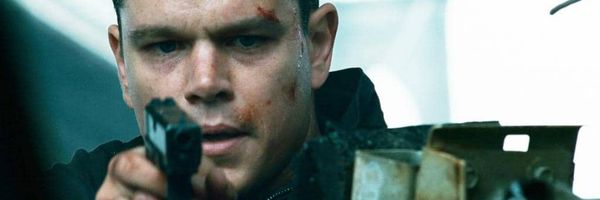Eye For Film >> Movies >> The Bourne Ultimatum (2007) Film Review
The Bourne Ultimatum
Reviewed by: Paul Griffiths

Bourne is most definitely back. Matt Damon's third outing as the amnesiac assassin delivers on its promises to be the best blockbuster of the year so far.
As soon as those chugging violins start up we're thrown straight back into Bourne's world with nary a let up in pace until the very end. The dynamic tempo is exhilarating, the action riveting and the quality cast nail the performances throughout.

There are few roles Damon has seemed really, well, born to play, but he has inhabited his portrayal of the professional killer turned good guy on the run wholeheartedly ever since 2002's Bourne Identity. The film consolidated his place in the mainstream after the guff of Bagger Vance. In 2004, The Bourne Supremacy saw his protagonist turn on his decidedly shady CIA ex-employers as glimpses of his past life returned to him. Now he brings the same taut conviction and strained tragedy of searching for his lost self to Ultimatum - but this time the almost non-stop action builds towards a crescendo of actual answers to his questions.
Supremacy scribe Tony Gilroy returns and, having long since deviated from Robert Ludlum's source novels, has whittled out an irresistible and wholly satisfying dovetail join between the two sequels. Ultimatum starts with Bourne still in Moscow, having barely survived Supremacy's epic car chase and before he later spies on CIA boss Pamela Landy (Joan Allen) in New York, which is how Supremacy ended. That scene is a crucial feature in Ultimatum but doesn't occur until the third act. Ultimatum is the story of how Bourne gets to that point. It may sound trite but it works seamlessly, enables Gilroy's screenplay to ignite with Supremacy's energy from the off and is a joy for hardened fans.
Bourne is brought out of hiding when Guardian journalist Simon Ross (Paddy Considine) publishes a story that speculates on both his existence and that of Treadstone, the black ops CIA squad he worked for. Treadstone may be defunct now but when Bourne contacts Ross he enters the sights of a new, even deadlier covert operation, Blackbriar - as referenced in the first film. Led by David Strathairn's ruthless Noah Vosen and with Scott Glenn pulling the strings from on high, soon Blackbriar is hell-bent on erasing the threat of Bourne. Advanced killers, or 'assets', are dispatched as he hurtles across continents to find his answers, again picking up fellow agent Nicky Parsons (Julia Stiles) along the way.
Strathairn, Glenn, Stiles and Allen eat up the scenery with convincing gusto while returning director Paul Greengrass grounds the action with his trademark realist camera work. Once again the frame is hardly ever still, with handheld cameras urgently capturing people's movements, the gritty style effectively conveying tension, danger and immediacy. If the approach were more polished, the film would lose its sense of credibility and its power to drag your eyeballs down the street after it. There are a few simple gadgets on show, but these primarily serve the filmmaking. Having agents carrying mini-digital cameras that broadcast straight to the Blackbriar base is a simple, realistic conceit that lets CIA directors, and the audience, see exactly where a gun is pointing as it scopes to and fro for its target.
Once more Bourne's travels and the multiple locations provide some fantastic set pieces - intense cat and mouse escapades at London's Waterloo station, rooftop chases in Tangiers - and while the much-vaunted New York car chase doesn't quite stand up to the previous Moscow finale, when Bourne treats cars as disposable weapons and glass tinkles across the screen it's still visceral enough. Damon excels again in the one-on-one, limbs-blurring combat whilst the conspiratorial geopolitics revolves around him. The sweaty, full-on fight scenes are frenetic, brutally crunching and there are times when their grip simply won't let you breathe.
Greengrass lets just a little panting humour creep in to alleviate the tension now and then and, perhaps, to knowingly undermine the inherently fantastical elements of his seemingly indestructible hero. More seriously, Greengrass and Gilroy show how Bourne is still as invigorating and as relevant as ever. He's been credited for shaking and stirring the Bond series, and rightly so, but in his franchise Bourne fights the corrupt powers that be and not some dissident world-hater. His enemy is within, both his memory and corrupt government systems, not some terrorist threat without. The danger is from our own powerbrokers, the question is how they train us, what they make us give for them to wield that control, and how? When Identity first came out there were concerns its Cold War echoes had no place in a post-9/11 world. There are no such worries here as Ultimatum smacks tellingly with modern-day significance.
Intelligent commentary, fine filmmaking and a totally rollicking ride of a movie to boot. Good things can come in threes.
Reviewed on: 09 Aug 2007




















